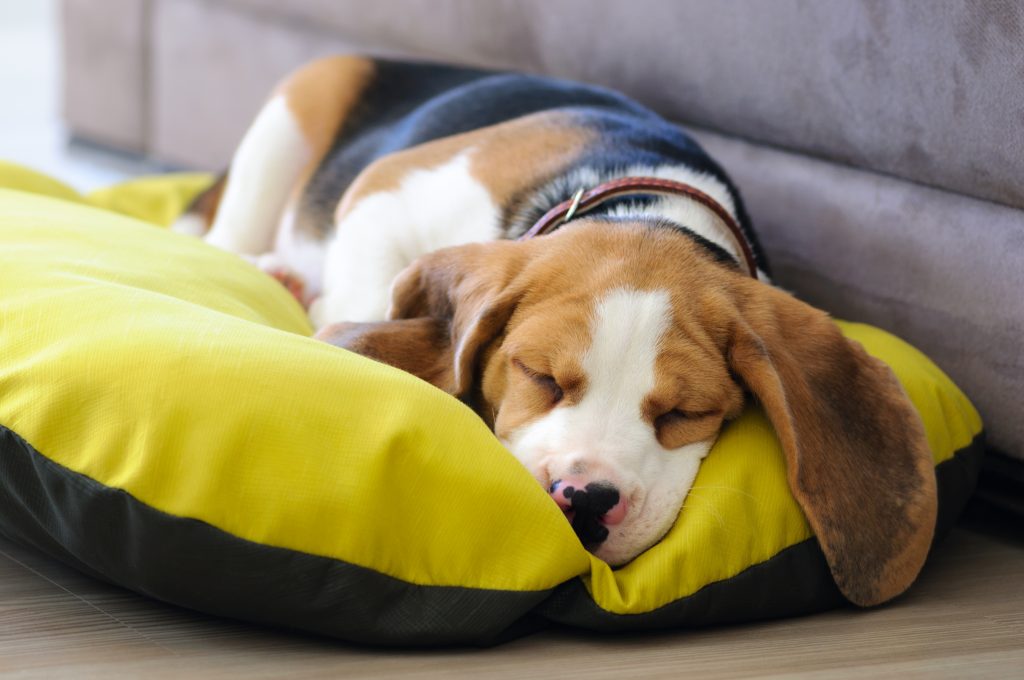
Sponsored article
Our pets very often instinctively hide their illnesses and ill-health. This is a mechanism that has remained with them from the time when they were undomesticated animals. When you notice that your pet is sluggish, this is the first signal that something is wrong. Of course, it’s your duty as a guardian to take your pet to the vet, but while waiting for it, you can look for the cause of the problem. What may be the reasons for the decline in the form of a dog or cat and what to do when the pet is sluggish? We suggest!
If your pet is already of age, it’s very possible that its sluggishness, lack of desire to play and shortened walks are due to old age. It’s normal that senior pets get tired faster, sleep more and are less eager to play. However, this doesn’t exempt you from a visit to the vet, moreover, older pets are even more likely to have heart or digestive diseases, which can cause sluggishness among other things. You will need to have blood tests and check the general health of your cat or dog. Remember to still meet your pet’s needs despite its age. Scratching post for the cat is necessary even in a mature old man, because it serves primarily for hygiene, and the cat scratches instinctively. the same applies to dogs, which regardless of age, have the need to sniff. If your pooch is no longer demanding on walks, provide him with a sniffing opportunity by giving him a sniffing mat

The summer heat doesn’t just get people down. Animals are just as susceptible to overheating, if not more so. One of the most striking symptoms of heatstroke is sluggishness. How can you prevent such a situation? First of all, provide your pet with a place in the shade and constant access to fresh, cool water. You can cool your dog down in a swimming pool or lake, for example, or even in the shower. Cats, on the other hand, like to use cooling mats. Pets also like to lie on the tiles in the kitchen or bathroom on hot days to relieve themselves. The basis for avoiding heatstroke, however, is not immediate action, but long-term, because obese animals are particularly vulnerable to overheating
In order for a dog or cat not to become overweight it must be properly fed. For both species of furry animals food must be high-meat and grain-free. Their digestive systems are not designed to digest starch, so any grain fillers such as wheat, rice or pasta are harmful to pets. Dog food can contain vegetable additives, as dogs absorb minerals from plants very well. Cats, on the other hand, are absolute carnivores, which means that their food must consist of meat only. For those with allergies, it is necessary to introduce a mono-protein food, such as Exclusion, which contains protein from only one meat, making it easy to eliminate allergens. Proper nutrition also avoids many diseases that cause sluggishness and malaise in pets.
A sick dog or cat will also not have the strength to play, walk. A common symptom of food poisoning is reluctance to eat, painful posture and apathy. How to proceed in case of poisoning? The first option, if your pet has vomiting and/or diarrhea, caused by food poisoning, is to give him activated charcoal in a dose of about 3 g per 1 kg of body weight. This is a safe way to inhibit poisoning in your pet. If you suspect that your pet has eaten a foreign object – a button, a small figurine, a key, anything that it is not able to digest, or has eaten something toxic, it is possible to induce vomiting by administering oxygenated water in a dose of 2 ml per 1 kg of body weight. Vomiting should never be induced without consulting your vet
Remember that every behavior which differs from the norm is a signal for you that something wrong is happening with your pet. If your pet doesn’t want to play, doesn’t want to be touched and stroked, avoids contact, has no appetite or gets aggressive – it may be a symptom of pain and disease. Be sure to take him to the vet as soon as possible.
Main photo: Roberto Nickson/Unsplash